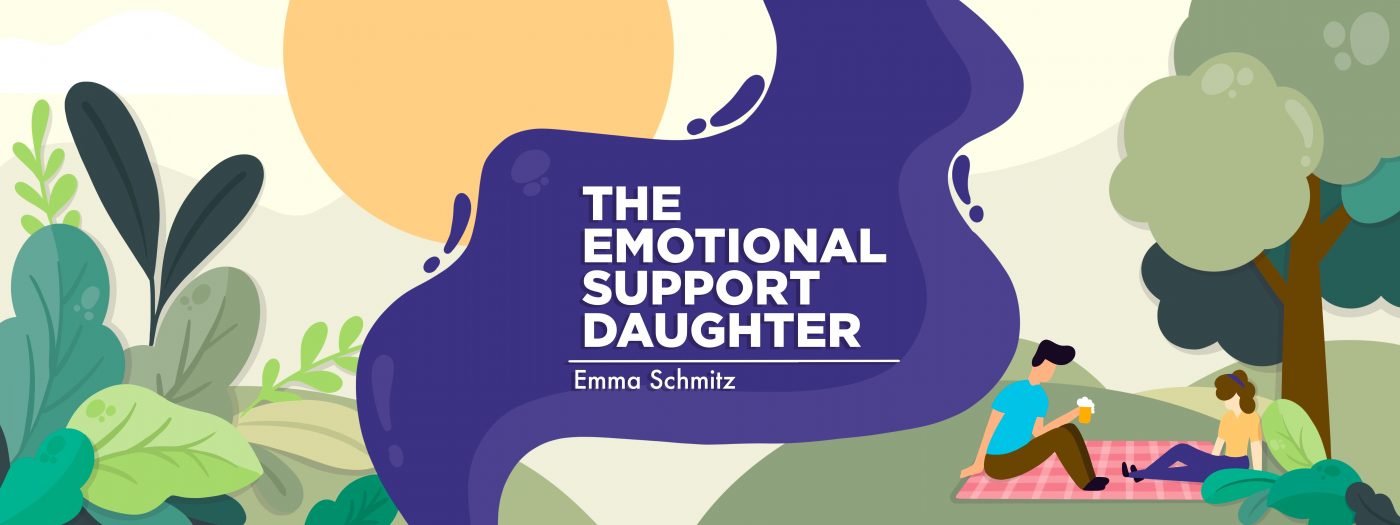I Now Understand the Importance of Really Washing Your Hands
Written by |

“Did you wash your hands?”
That’s a question I was very familiar with long before the COVID-19 pandemic. My mom, Diana, is an obsessive hand-washer. She is also obsessive about making sure everyone else does it. She’ll merely sense my dad’s craving for chips and then ask him if his hands are clean before he even reaches for the bag. Every time I visit my parents’ house, before every meal, my mom asks me if I’ve washed my hands.
When my brother and I were kids, at the age when parents can still tell you what to do, my mom would command us to “Lava los manos” before each dinner. Her commands were rustier than the hue of the Golden Gate Bridge, with the reflexive pronoun dropped off, mostly gone like the rest of her Spanish, and the definite article mispronounced, because back when she was immersed in the language at home, she was learning how to write. That was before her family moved from San Francisco to San Rafael, California, where my brother and I eventually took the highest level of Spanish class at our high school and, being teenage know-it-alls, started correcting the phrases of her own mother tongue.
I have a secret to share: I’ve hard-wired myself to simply respond, “Yes, Mom,” even if maybe I haven’t washed my hands specifically for that meal. But that automatic white lie was not going to fly while caretaking for a lung transplant patient during a respiratory virus pandemic. It was June of 2020, and my mom had just been discharged after recovering from a single-lung transplant operation at the University of California, San Francisco hospital. As one of her recovery caregivers, I was about to relearn how to really wash my hands.
For the rest of my mom’s life, she’ll be taking immunosuppressants so her body doesn’t reject her new lung. Her new lung is less like a retro floor lamp that fits perfectly in a corner of the house for eternity, no questions asked, and more like that ficus plant you inherited from someone who didn’t have room for it anymore, and you’re so excited to have it in your house, but the plant was used to the sunny window in its previous home, and you’re not really sure if you can give it the right combination of sunlight, water, and care to keep it alive, let alone thriving. All you can do is check in with its well-being every day and hope you have things under control. Fortunately, my mom has a team of doctors to help her take care of her new lung.
If my mom had planned to finally get into the hobby of gardening or become a crazy plant lady during her retirement years, a lung transplant has surely squandered those dreams (while simultaneously allowing for any other dreams to be pursued; so there’s that). Dirt is bad for someone who takes daily medication to suppress the immune system.
Thankfully, my mom’s passions don’t rely on digging in the dirt; she’s more of a classic puzzle gal. But as a self-proclaimed “dirt girl” myself, the idea of distancing from that wondrous substance that grows food and paves trails (and that I’m typically covered in from April to November), makes my heart droop a little bit.
Despite this, I knew my parents needed me. So, I scraped the garden soil from underneath my fingernails and got really good at washing my hands. I washed my hands like never before. I would punch the hand soap dispenser with the base of my wrist, lift the faucet open with my forearm, and scrub. Scrub-a-dub-dub.
I hummed happy birthday in my head as the experts said to do. I would even turn off the faucet so as not to worry about wasting water as I took my time getting clean. I would massage the webbing between my fingers, wash way up past my wrists, and get the back of my hands and fingertips.
I washed my hands in a way that would make my mother proud, and she was, in fact, grateful. Instead of feeling micromanaged by a loving parent, I understood that this was different: Her life depended on the way I washed my hands.
***
Note: Pulmonary Fibrosis News is strictly a news and information website about the disease. It does not provide medical advice, diagnosis, or treatment. This content is not intended to be a substitute for professional medical advice, diagnosis, or treatment. Always seek the advice of your physician or other qualified health provider with any questions you may have regarding a medical condition. Never disregard professional medical advice or delay in seeking it because of something you have read on this website. The opinions expressed in this column are not those of Pulmonary Fibrosis News or its parent company, Bionews, and are intended to spark discussion about issues pertaining to pulmonary fibrosis.



Sherri
Emma- i loved this!!! It was so rich and funny!!!
Emma Schmitz
Aw, thank you, Sherri!